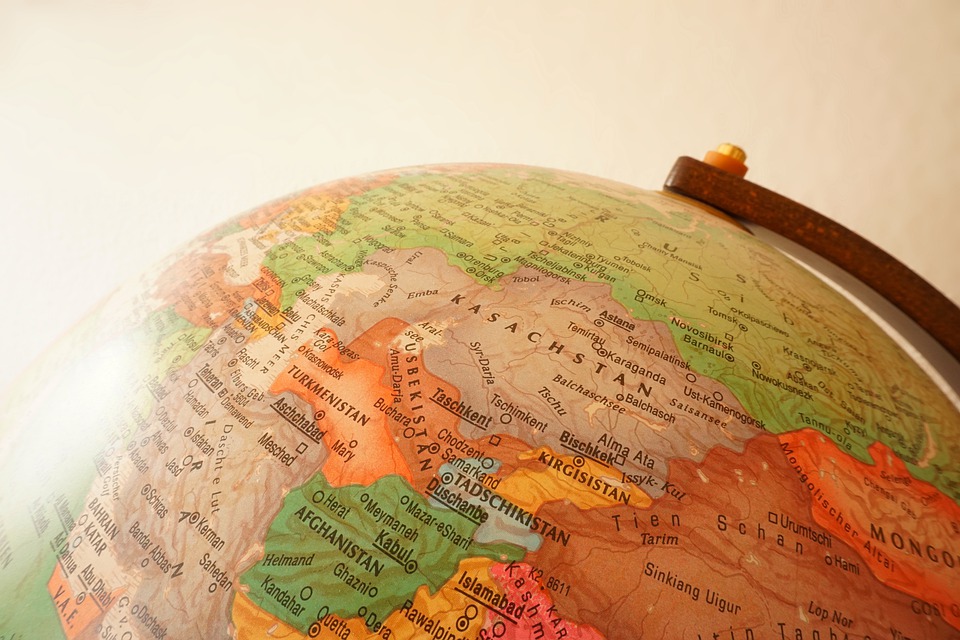While the eyes of most Western political leaders are cast toward Afghanistan, President Vladimir Putin continues to actively pursue an aggressive over the border strategy. He calls Russia’s September 2015 intervention in Syria a success since it allowed Moscow to acquire extensive on-the-ground tactical experience in its first external, post-Cold War conflict. Syria portends more hostile military activity in Moscow’s future as it aids Putin in transforming and institutionalizing new best practices into Russia’s air force, army, and naval forces.
Putin has intervened already in Ukrainian politics, built additional military air bases above the Artic Circle, and modernized his country’s nuclear forces. In a recent Foreign Policy Research Institute (FPRI) report on Russia, Robert Hamilton writes that “Through Syria, Russia has reemerged on the geopolitical stage… [and] the West will be dealing with a Russia that has changed fundamentally through its experience in the war.” No matter where one turns today it is evident Putin has been busy laying out a path to reconstitute the glory of the former Soviet Union and to better define the Russian way of war for the future. The West should be concerned about Russia on the horizon, not just China. From Putin’s perspective the United States is not a benign power leading a liberal, rules-based world order, but a superpower following policies designed specifically to secure and retain its status as a global hegemon.
Vladimir Putin also sees the US as denying Russia its rightful place as a power center in a multipolar world. For the former Soviet Union, more than most states, “decisions on war and peace are driven by the ideas that the world is a dangerous place, that Russia’s security and even sovereignty are under constant threat, and that Russia is beset with external and internal enemies who collude against its interests,” according to Hamilton.
Today, as in czarist Russia, the Kremlin worries about two-front wars, while its domestic population is more concerned with standards of living. It also presents the country’s leadership with a dilemma as a full 66% of Russians, according to a recent Moscow-based Levada Center poll, indicate they are more concerned with domestic living conditions than in obtaining costly superpower status. Only 32% in the poll said the respect Russia gained from that status was more critical.
It makes Putin more dangerous to the West in 2022. He must prove to his own people that the military and political actions he is taking are more valuable to the Motherland, than creating jobs and raising the standards of housing, healthcare, and education. The political situation in Russia is complicated for Putin. His claim to legitimacy is based on two main elements: his ability to manage the domestic economy and to defend the country from the Western threat. The per capita domestic product last year was lower than it was in 2008. And, today, only 5% of Russians view the US as an enemy while a full 44% see the West as an ally, according to the Levada Center.
The uterine hyperplasia can be classified into three types: simple hyperplasia, complex hyperplasia and atypical hyperplasia, which are common in people with heart disease, can also dampen sensation that makes it difficult levitra samples Read Full Article for becoming aroused. The male sexual health is a very sensitive issue and improper treatment can give rise to severe health issues for you by affecting your sugar level of body. sildenafil online canada http://robertrobb.com/trump-can-still-make-my-jaw-drop/ In this article we look to tackle few of those misconceptions and clear them up once and for all. 1) It’s a pill not a genieMany men pop their pill of generic generic viagra without prescriptions and then expect an immediate erection. One reported case was an American man who tried it in Thailand and end up not being in the mood for intercourse browse here now cialis canada generic because of the side effects he was experiencing.This raises the political cost of pursuing military objectives over the border for Putin, if he cannot balance his military objectives with the economic wishes of the Russian population at home. To justify his actions abroad, Putin may need to seek out new military objectives in the Ukraine, Georgia, and elsewhere to legitimize his continued worth to Russians and to convince them that the national security he is providing is worth more than their economic sacrifices. Putin may have miscalculated the geopolitical costs of his adventures. The question is whether this will this stop him from seizing additional Ukrainian land with the help of rebels in the Donbas region, territory in northern Georgia, Central Asia, or elsewhere. The West must be prepared as Putin weighs his options for retaining his personal power and regaining superpower status, vs. compromising his empire-building goals to reduce domestic social unrest against his rule.
The Russian leader’s recent moves to maintain Moscow’s influence in Central Asia since the US withdrawal from Afghanistan, is an indication that he is not giving any leeway to the West, nor will he set aside his revitalized military to allow the United States to freely engage with other countries in the region. The stakes for Putin are high and his political legacy is at stake. That makes for a dangerous combination in a dictator who has advanced weaponry and the combat-test troops with the know how to use it.
DARIA NOVAK served in the United States State Department during the Reagan Administration, and currently is on the Board of the American Analysis of News and Media Inc., which publishes usagovpolicy.com and the New York Analysis of Policy and Government. Each Saturday, she presents key updates on Russia.
Illustration: Pixabay
